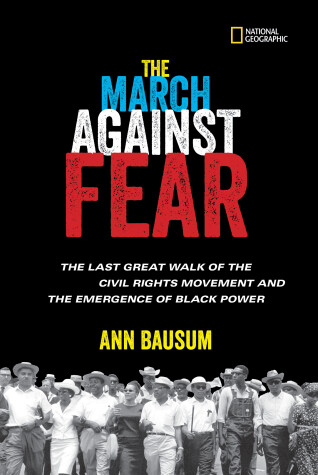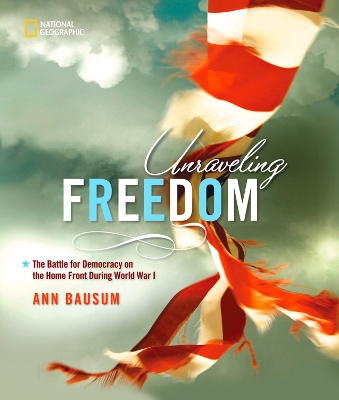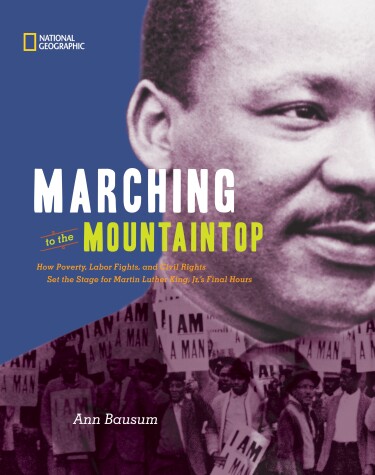History (US)
3 total works
The retelling of Meredith's story opens on the day of his assassination attempt and goes back in time to recount the moments leading up to that event and its aftermath. Readers learn about the powerful figures and emerging leaders who joined the over 200-mile walk that became known as the "March Against Fear."
Thoughtfully presented by award-winning author Ann Bausum, this book helps readers understand the complex issues of fear, injustice, and the challenges of change. It is a history lesson that's as important and relevant today as it was 50 years ago.
Drawing thought-provoking parallels with President Wilson’s government and other wartime administrations, from FDR to George W. Bush, Bausum’s analysis has plenty of history lessons for the world today. Her exhaustive research turns up astonishing first-person stories and rare images, and the full-color design is fresh and stunning. The result is a gripping book that is well-positioned for the run-up to the World War I centennial."
National Geographic supports K-12 educators with ELA Common Core Resources.
Visit www.natgeoed.org/commoncore for more information.
In early 1968 the grisly on-the-job deaths of two African-American sanitation workers in Memphis, Tennessee, prompted an extended strike by that city's segregated force of trash collectors. Workers sought union protection, higher wages, improved safety, and the integration of their work force. Their work stoppage became a part of the larger civil rights movement and drew an impressive array of national movement leaders to Memphis, including, on more than one occasion, Dr. Martin Luther King, Jr.
King added his voice to the struggle in what became the final speech of his life. His assassination in Memphis on April 4 not only sparked protests and violence throughout America; it helped force the acceptance of worker demands in Memphis. The sanitation strike ended eight days after King's death. The connection between the Memphis sanitation strike and King's death has not received the emphasis it deserves, especially for younger readers. Marching to the Mountaintop explores how the media, politics, the Civil Rights Movement, and labour protests all converged to set the scene for one of King's greatest speeches and for his tragic death.
National Geographic supports K-12 educators with ELA Common Core Resources.
Visit www.natgeoed.org/commoncore for more information.


